| 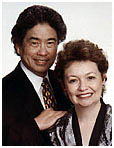 Effective
Teaching...
Effective
Teaching...
by Harry and Rosemary
Wong
October
2000
How to Start
a Class Effectively
No one was allowed into the brand-new Molasky Junior High School
in Las Vegas until two days before school began. Why? The school
was still under construction. Yet, at the end of the school year,
51 percent of the students attained honor roll status of 3.0 or
higher. Without the use of any expensive packaged program, any
change in the school's academic schedule, or any expenditure of
school funds, you and your school can achieve such success, too.
It's All in How You Start
In tennis you are allowed two serves for each point. How you play the first serve will allow you to dictate the point.
In knitting, how you begin the first row will determine your success with the rest of the stitches. In fact, you can expect to start all over again if you find out later that you began incorrectly.
And guys who have ever tried to meet a nice lady, know that the first sentence said to her will determine if she will allow you to say a second sentence to her or not.
Prime time is a term used by the television industry to denote the time when the audience is potentially at its largest. (See page 133 in The First Days of School.) Prime time in school is the first few moments in class. If you blow these moments you blow the success of your class for that day. The same is true for the first day of school. It is the most important day of the school year. You start the first day of school incorrectly and you may never recover for the rest of the year. Effective teachers know how to begin the first day of school, the beginning of the school day, and the beginning of the class work.
Your first priority when class begins is not to take the roll; it is to get the students to work.
An assignment must be available, and the students must know the procedure for getting to work immediately. Do not destroy prime time with non-prime time activities such as taking the attendance, making announcements, answering questions, or collecting papers.
To prepare the students for the day's instruction, they should enter the classroom and begin with a morning or class routine. A typical routine could be
Morning Routine
- Quietly walk into the classroom.
- Remove coat or jacket. Hang it up.
- Empty backpack or book bag.
- Have two sharpened pencils, books, and materials ready.
- Hand in all completed homework.
- Read the agenda for the day.
- Begin BELLWORK assignment on your own.
The effective teacher has
- a bellwork assignment already posted before the students enter the classroom and
- it is posted in the same location every day.
You know this is not happening when the students enter the classroom and immediately begin asking, "What are we going to do today?" or "Are we going to do anything important today?" They then wander around visiting and talking, and do not sit and settle down until the teacher asks, urges, yells, and becomes caustic in order to get their attention.
Opening assignments can be posted on the chalkboard, a bulletin board, a transparency, or distributed when the students enter the classroom. If you are a migrant or resource teacher who has to move from room to room, have the assignment ready on a transparency or on a flip chart ready to display the second you enter the classroom.
In classes such as physical education and K-1, the assignment does not have to be posted. The procedure is started as the bell rings, and then is rehearsed, and is repeated daily so that when the students enter the class they just know what to do.
Lucia M. Dideo, Spanish teacher at Manchester Township High School in Whiting, New Jersey, began her career as a migrating teacher. She had to go from one side of the building to the other. She used four different classrooms, used by a math, science, English, and history teacher. She entered each of these rooms ready with the assignments, objectives, rules, and procedures on a corkboard.
After five years of teaching, she now has to change rooms only once a day, and she's expanded her technique to use either a corkboard or a portable dry erase board. She proudly says that her students are learning because they speak to her in Spanish when they see her at the mall.
The start of the school day in your classroom tells the students that you are organized and ready to work. This is the same expectation you have of your students-organized and ready to work.
Effective Teachers Waste No Time
Shirley Hord, researcher with the Texas Education Agency, discovered that anywhere from 3 to 17 minutes are typically wasted at the beginning of each classroom period. That is, from the time the first student enters the classroom until instruction begins, she discovered that anywhere from 9 percent to 32 percent of the total classroom time could be wasted.
However, effective teachers know that students will easily get to work if
- The students have an assignment;
- They know where to find the assignment; and
- They know why they are to do the assignment.
Effective teachers have different names for these opening assignments. Some common terms are
Bellwork,
Assignment,
Do Now,
DOL (Daily Oral Language),
Sponge Activity, and
Prime Time.
A teacher in Arizona has a set of bellwork assignments prepared for the entire school year. These are on transparencies, one for each day, and are stored in a binder on the cart under the transparency projector. Each night before she leaves, she places the next day's assignment on the projector ready for the next morning. She also has a student trained to turn the projector on if she should be late coming into the classroom.
As you develop your own set of assignments, keep them and you will have them ready for the following year. The best bellwork assignments are those that are related to that day's work with a transition or a motivation to what is to follow. A common bellwork in elementary schools, especially K-4, is silent reading until the lesson begins. Some sample opening assignments can be found in the book, The First Days of School, and the video series, The Effective Teacher. Also, for sale from Daily Bite, 803 Midvale Lane, San Jose, CA 95236 is a set of bellwork activities.
Bellwork assignments are not graded. Do not begin a class by threatening the students. A bellwork assignment is a procedure and procedures are not rules, thus have no consequences or punishments.
Effective Schools Have School-Wide Procedures
At Harris Elementary School in Bakersfield, California, the principal, Wanda Bradford, showed tape three of the video series, The Effective Teacher. She did not mandate anything, rather her staff chose to start each day with a bellwork assignment. Thus, this became a consistent school-wide procedure.
She reports, "We start each day with a structured opening. Each teacher has a daily opening and the students start the day on task." She describes the success of her school in a poem.
Each day begins with learning
When students come to class.
And without a lot of chatting,
They start the day on task.
With assignments clearly posted
Students need not be told,
To quiet down and get to work
While the teacher takes the roll.
If daily routines are followed
Less wasted time is spent.
Classes will run smoothly
With great class management.
Research has been proven
Achievement gains will rise,
When effective teachers start the day
With time that's maximized.
The key words in the poem are "achievement gains." The staff at Harris School in Bakersfield was able to obtain student achievement because of its knowledge of "classroom management" and the implementation of "procedures and routines."
The goal in the above poem is student achievement and the teachers achieved this by using routines to manage their classrooms. (Please refer to our September column for an understanding that the effective teacher manages with procedures, not with discipline. Also, additional reference can be found in The First Days of School, Chapter 15, "How to Post Your Assignments.")
Fifty-One Percent on the Honor Roll
Because of construction delays the staff of Molasky Junior High School in Las Vegas was unable to be on campus until two days before the school year began. Yet the classes at the brand new school began smoothly, because the staff met off-campus as a family for two days before school began and agreed on a "Blueprint for Success." The blueprint consisted of five procedures the first of which was
Students are seated and completing a "Prime Time"assignment when the tardy bell rings.
At the end of the year principal Pam Hawkins writes, "I can't help but reflect on the success of our first year. I attribute much of that success to the consistent implementation of school-wide procedures. Many of my teachers have told me that this has been their best year of teaching. Perhaps the greatest affirmation is that 881 or 51 percent of our students attained honor roll status of 3.0 or higher."
Life Would Be So Much Easier
What do the two schools in Bakersfield and Las Vegas, and so many other schools, have in common to create student achievement? The staffs met together as a family and agreed on school-wide procedures.
Think about Harris School in Bakersfield, Molasky Junior High School in Las Vegas, or, better yet, your own school. Imagine
- The students walk into a class, sit down, and immediately get to work. No one tells them what to do; they know where to find the assignment.
- They go to their next class, sit down, and get to work.
- And on to the next class.
- The next class.
- And the next.
And this becomes the prevailing culture of the school. The next year the students go from 3rd grade to 4th grade, 6th grade to 7th grade, and 11th grade to 12th grade, and this is the prevailing culture in the school district.
- Just think how much easier life would be if the teachers supported each other with routines that were consistent.
- Just think what the achievement of these students would be if this were the prevailing culture of the school.
- Just think how effective the schools would be if this were the prevailing culture of the district.
To accomplish all of this, no money is spent. No costly, faddish programs are installed. Nothing is controversial and the concept works regardless of what grade is taught, what subject is taught, and what educational philosophy is espoused by the district.
The key is the staff works together as a family, creating a sense of consistency, thus making life so much easier for everyone. And, most importantly, student achievement is increased because there is more time for instruction and learning.
Please Share With Us
We encourage you to read all of our past columns starting with June 2000. To do this click on "Gazette Back Issues" in the left margin of this column.
Thomas A. Edison said, "If there is a way to do it better... find it." We appreciate all of the professional educators who have found better ways to do things and have shared them with us. Your kindness in continuing to share your classroom procedures, techniques, or activities with us will be most appreciated. They can be e-mailed or sent to us at Harry K. Wong Publications, 943 North Shoreline Blvd., Mountain View, CA 94043.
We truly believe that each and every one of you can find
better ways to be even more effective. As you travel this path
of effectiveness we wish you the opportunity to grow, to stretch,
to collaborate, to reflect, to create, and to craft a classroom
that hums with learning and student achievement.
 For a printable version of this article click
here.
For a printable version of this article click
here.
Harry & Rosemary Wong products: http://www.harrywong.com/product/
Email Harry Wong: harrywong@teachers.net
Gazette Articles by Harry & Rosemary Wong:
If you spot a link that appears to be out-of-date, please alert us at webmaster@teachers.net!
- A Grateful Goodbye After 15 Years (Jun 2015)
- Love, Marriage, and Babies, Oh My! (May 2015)
- Retention Rate Is 100 Percent (Apr 2015)
- Teacher Effectiveness and Human Capital (Mar 2015)
- Training Teachers to Be Effective (Feb 2015)
- Making Deals Is Ineffective (Dec 2014 / Jan 2015)
- Retrieving and Carrying Electronic Devices (Nov 2014)
- Sharing to Succeed (Oct 2014)
- How a University Prepares Its Students (Sep 2014)
- Effective Teaching (Aug 2014)
- Your Future Is in Your Hands (June/July 2014)
- The Classroom Management Book (May 2014)
- When Students Succeed; Teachers Succeed (April 2014)
- Teaching New Teachers How to Succeed (March 2014)
- Execute and Praise (February 2014)
- Shaping a Solid Foundation (Dec 2013 / Jan 2014)
- The Most Misunderstood Word (November 2013)
- How to Start Class Every Day (October 2013)
- Prevention: The Key to Solving Discipline Problems (September 2013)
- Planning, Planning, Planning (August 2013)
- Are You THE One? (June / July 2013)
- Practical Examples That Work (May 2013)
- A Disability Is Not a Handicap (Apr 2013)
- Totally Inexcusable (Mar 2013)
- Be Proud of Public Education (Feb 2013)
- Structure Will Motivate Students (Dec 2012 / Jan2013)
- Orchestrating the Classroom (Nov 2012)
- The Lasting Impact of Instructional Coaching (Oct 2012)
- Learning, Laughing, and Leaving a Legacy (Sep 2012)
- Twenty-two, First Year, and Legit (Aug 2012)
- A Master Teacher of Teachers (June/July 2012)
- Where Going to School Means Success (May 2012)
- A Nationally Celebrated High School (Apr 2012)
- The Highest Rated School in New York City, Part 2 (Mar 2012)
- The Highest Rated School in New York City, Part 1 (Feb 2012)
- The Importance of Culture (Dec 2011 / Jan 2012)
- You Can Teach Classroom Management (Nov 2011)
- Seamless, Transparent, and Consistent (Oct 2011)
- Coaching Teachers to Be Effective Instructors (Sep 2011)
- How a Principal Creates a Culture of Consistency (Aug 2011)
- Graduation Begins in Your Classroom (June/July 2011)
- The Inspiration of a Mother (May 2011)
- How to Be an Effective Leader (Apr 2011)
- Learning Objectives: The Heart of Every Lesson (Mar 2011)
- Even Shakespeare Had Structure (Feb 2011)
- Effectiveness Defined: It's Not a Mystery (Dec 2010 / Jan 2011)
- Surviving Without a Principal (Nov 2010)
- Achieving Greatness: Locke Elementary School, Part 2 (Oct 2010)
- Teaching Greatness: Locke Elementary School, Part 1 (Sep 2010)
- Effective from the Start (Aug 2010)
- Ten Year Summary of Articles, 2000 to 2010 (June/July 2010)
- The Success of a Culture of Consistency (May 2010)
- Training Teachers to Be Effective (Apr 2010)
- Learning to Teach, Teaching to Learn (Mar 2010)
- Turning Teaching Dreams into Reality (Feb 2010)
- Dreams and Wishes Can Come True (Dec 2009 / Jan 2010)
- Success in a State Controlled School (Nov 2009)
- Inner City Is Not An Excuse (Oct 2009)
- Exceeding All Expectations (Sep 2009)
- Teachers Are the Difference (Aug 2009)
- Nine Year Summary of Articles, 2000 to 2009 (Jun/Jul 2009)
- Teachers Are the Greatest Assets (May 2009)
- The Tools for Success (Apr 2009)
- Assessing for Student Learning (Mar 2009)
- To Be an Effective Teacher Simply Copy and Paste (Feb 2009)
- The Sounds of Students Learning and Performing (Dec 2008)
- A School That Achieves Greatness (Nov 2008)
- Boaz City Schools: Professional Learning Teams (Oct 2008)
- It Was Something Close to a Miracle (Sep 2008)
- A Computer Teacher Shows the Way (Aug 2008)
- Eight Year Summary of Articles, 2000 to 2008 (Jun/Jul 2008)
- An Amazing Kindergarten Teacher (May 2008)
- Schools That Beat the Academic Odds (Apr 2008)
- Academic Coaching Produces More Effective Teachers (Mar 2008)
- Coaches Are More Effective than Mentors (Feb 2008)
- Wrapping the Year with Rap! (Dec 2007/Jan 2008)
- The Floating Teacher (Nov 2007)
- Taking the Bite Out of Assessment—Using Scoring Guides (Oct 2007)
- Ten Timely Tools for Success on the First Days of School (Sep 2007)
- First Day of School Script - in Spanish, Too! (Aug 2007)
- Seven Year Summary of Articles, 2000 to 2007 (Jun 2007)
- Effective Teachers End the Year Successfully (May 2007)
- Training Gen Y Teachers for Maximum Effectiveness (Apr 2007)
- Classroom Management Applies to All Teachers (Mar 2007)
- Students Want a Sense of Direction (Feb 2007)
- Rubrics in Two College Classes (Dec 2006/Jan 2007)
- How to Write a Rubric (Nov 2006)
- Assessing Student Progress with a Rubric (Oct 2006)
- A 92 Percent Homework Turn-in Rate (Sep 2006)
- Effective Teachers Are Proactive (Aug 2006)
- Five Year Summary of Articles (Jun 2006)
- Hitting the Bulls Eye as a Beginning Teacher (May 2006)
- They're Eager to Do the Assignments (Apr 2006)
- The Success of Special Ed Teachers (Mar 2006)
- What Teachers Have Accomplished (Feb 2006)
- Fifty Years Ago, The Legacy (Dec 2005/Jan 2006)
- The Emergency Teacher (Nov 2005)
- Classroom Management Is Not Discipline (Oct 2005)
- A Successful First Day Is No Secret (Sep 2005)
- The Most Important Factor (Aug 2005)
- Four Year Summary of Articles (Jul 2005)
- Improving Student Achievement Is Very Simple (Part 2) (Jun 2005)
- Improving Student Achievement Is Very Simple (Part 1) (May 2005)
- Never Cease to Learn (Apr 2005)
- His Classroom Is a Real Life Office (Mar 2005)
- The Power of Procedures (Feb 2005)
- The First Ten Days of School (Jan 2005)
- PowerPoint Procedures (Nov/Dec 2004)
- The Saints of Education (Oct 2004)
- How Procedures Saved a Teacher's Life (Sep 2004)
- How to Help Students with Their Assignments (Aug 2004)
- Three Year Summary of Articles (Jun/Jul 2004)
- His Students are All Certified (May 2004)
- What to Do When They Complain (Apr 2004)
- A Well-Oiled Learning Machine (Mar 2004)
- The Effective Teacher Adapts (Feb 2004)
- How to Start a Lesson Plan (Aug 2003)
- Applying for a Teaching Job in a Tight Market - Part 2 (Jun/Jul 2003)
- Applying for a Teaching Job in a Tight Market (May 2003)
- The Effective Substitute Teacher (Apr 2003)
- A First Day of School Script (Mar 2003)
- How to Retain New Teachers (Feb 2003)
- No Problem With Hurricane Lili (Dec 2002)
- A Class Size of 500 (Nov 2002)
- Effective Practices Apply to All Teachers (Oct 2002)
- Dispensing Materials in Fifteen Seconds (Sept 2002)
- How To Start School Successfully (Aug 2002)
- Teaching Procedures Is Teaching Expectations (June - July 2002)
- $50,000 to Replace Each Teacher (May 2002)
- Even Superintendents Do It (Apr 2002)
- Impossible, No Job Openings? (Mar 2002)
- A Stress Free Teacher (Feb 2002)
- A Most Effective School (Jan 2002)
- Van Gogh in Nine Hours (Dec 2001)
- The Effective Teacher Thinks (Nov 2001)
- How a Good University Can Help You (Sep 2001)
- How to Motivate Your Students (May 2001)
- How to Recognize Where You Want to Be (Apr 2001)
- What Successful New Teachers Are Taught (Mar 2001)
- A Journey of the Heart (Feb 2001)
- The Miracle of Teachers (Jan 2001)
- It's Not the Students. It's the Teacher. (Dec 2000)
- The First Five Minutes Are Critical (Nov 2000)
- How to Start a Class Effectively (Oct 2000)
- The Problem Is Not Discipline (Sep 2000)
- There Is Only One First Day of School (Aug 2000)
- Applying for Your First Job (Jul 2000)
- Your First Day (Jun 2000)
Browse through the latest posts from the Classroom Management
Chatboard...
|




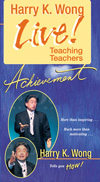
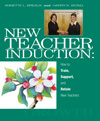
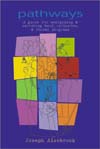


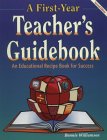
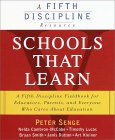

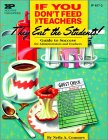
 Effective
Teaching...
Effective
Teaching...